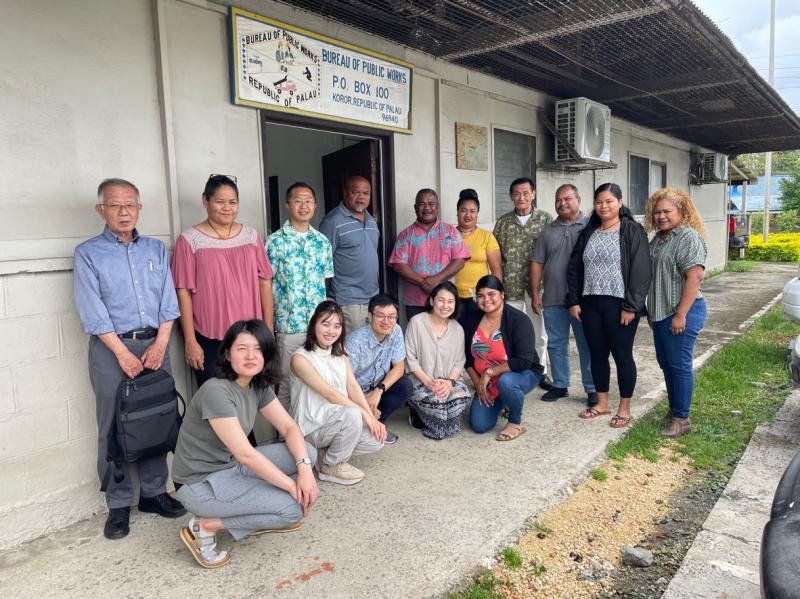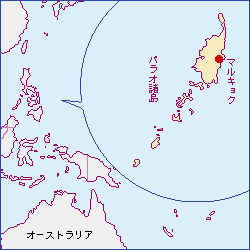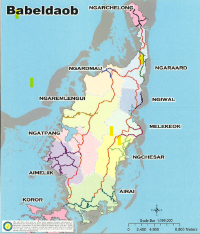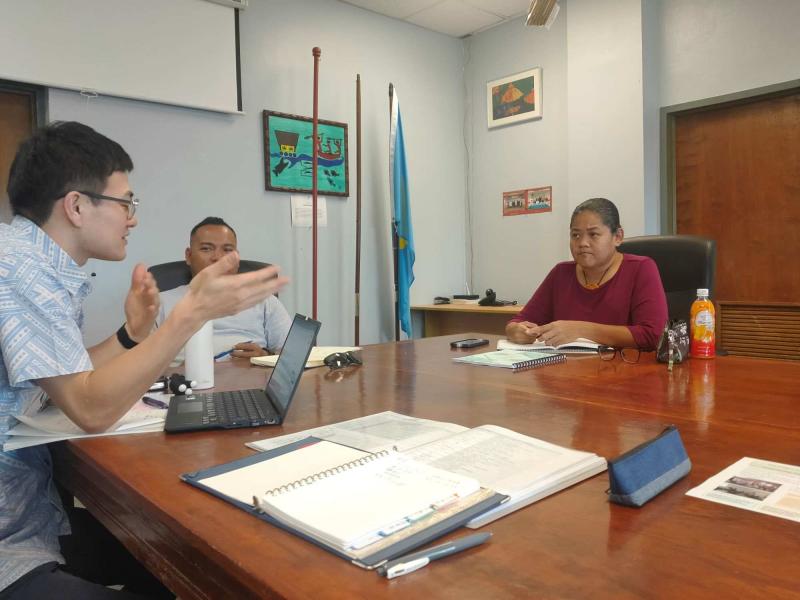Palau News Letter vol.1] has started! Project for Promotion and Dissemination of Separate Discharge System in Babeldaob Island, Republic of Palau (JICA Grassroots Technical Cooperation Project)
Grassroots technical cooperation project in Palau was launched!
In February 2023, "Promotion of Separate Discharge System in Babeldaob Island, Republic of Palau (JICA Grassroots Technical Cooperation Project)" was launched!
which was implemented for about 3.5 years until 2022.PalauThe "Public-Private Partnership Zero-Litter Society Promotion Project in Ibboban, Gappan State and Mongami, Aymerik State (JICA Grassroots Technical Cooperation Project)" is Phase 1, and Phase 2 will be implemented over the next three years.
Kick-off meeting with project stakeholders (March 7)
What kind of country is Palau?
Palau is a small, beautiful island surrounded by coral reefs, just south of Japan and west of the Philippines. Its area is about the size of Yaku Island, and its population is about the same as that of Toba City in Mie Prefecture. Of the more than 300 islands that make up Palau, nine are inhabited, and Babeldaob Island, the largest in area, is the main activity area for this project.
Palau is a fairly pro-Japanese country, and since it was under Japanese rule from World War I to World War II, there is much Japanese influence in its language and culture. Palauans primarily speak Palauan and English, but it is said that 2,000 Japanese words remain in the Palauan language, such as ochaku-san, bento, and sashimi. It is very interesting to listen to Palauans' conversations and hear many Japanese words mixed in with Palauan.

Republic of Palau (Source: Ministry of Foreign Affairs website)

Babeldaob Island (Source: Embassy of Japan in Palau)
What projects have been initiated?
In Palau, household garbage is thrown into drums in front of houses almost without separation, and then collected by trucks and thrown into landfills. Then, even if a new landfill is built, it will soon be filled up. Therefore, ICETT has set up collection stations for recyclables in targeted areas, and in cooperation with the Palauan Ministry of Public Infrastructure, Industry, and Commerce and the Palauan Ministry of Education, ICETT is working to educate residents about the importance of sorting and collecting garbage from Palauan households and recycling as much as possible! This is an activity that we are working on.
In Phase 1, we were promoting this activity in two areas on Babeldaob Island where about 100 people live. In Phase 2, we will expand the target area to all two provinces where about 300 people each live, including these two areas, with the goal of eventually expanding the sorting activity to the entire island of Babeldaob.
Phase 2 "Here's Unique!"
- A local coordinator was dispatched to Palau! (ICETT's first)
The local coordinator has moved to Palau since the first local activity conducted in February, and has begun to work toward achieving our goals, including reviewing issues at team meetings consisting of representative members of local stakeholders. It is expected that activities will be facilitated through smoother communication with local stakeholders!

Local coordinator (photo left)
- We will work to strengthen environmental education in elementary schools on the island of Babeldaob!
Environmental education for children is also indispensable in order for the culture of sorting to take root in Palau. In Phase 2, we plan to raise children's environmental awareness through waste separation and composting of food scraps at elementary schools, as well as training for teachers in Japan.
One Word Palau Diary
In this section, members of this project will tweet about their discoveries in Palau.
This issue will be handled by ICETT staff members who traveled to Palau for the first time in February.
I traveled to Palau for the first time in my life and found something in a supermarket. It was the very gummy bears I had brought to Palau from Japan as a souvenir. I was a little shocked that I had brought them all the way from Japan, but I was happy to see that Japanese snacks are loved in Palau as well. It was not only by chance that the gummies were sold, but there were countless Japanese snacks, canned goods, alcohol, shampoo, and many other items for sale.
By the way, do you know what "abrapan" is in Palauan?
The correct answer is "fried anpan"! It is interesting to imagine the reason for the naming.
We hope you are starting to feel a little closer to Palau. Please look forward to the next issue!


